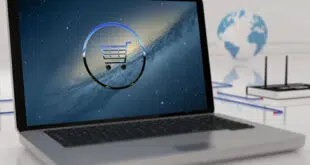The chief executives of Visa, Mastercard, American Express, and Discover last month came together to start the Payments Leadership Council, a group that also includes the heads of FIS, Fiserv, and Global Payments.
Thus, we now have witnessed the final step by adding the keystone to the pyramid of power that has been constructed over a decade. In this structure, big banks, their networks, and publicly held payments-industry players have consolidated their market power over merchants, small banks and credit unions, competing payments networks, and the emerging fintech companies that wish to challenge the old guard and its rusty payment rails.
A number of relatively recent developments in the payments industry have aided in the construction of the pyramid. First, we saw the demise of many of the regional payments networks that actually created debit cards for ATMs and later introduced them to merchants. Second, we witnessed the consolidation through merger and acquisition of the third-party processors that provide technology to banks. Third, there was the acquisition of third-party processors that provide technology to merchants by those that provide services to banks.

Some of us had hoped that the new, consolidated processing companies would provide much-needed competition to the networks. But our hopes have been dashed by the creation of the PLC. Now, it seems the new payments-industry behemoths have settled upon a division of their respective interests, resulting in spheres of influence in which the dominant companies each can benefit by direct association with one another.
Unfortunately, the emergence of payments associations—in which, theoretically, payments-industry competitors work together for the public good—has actually destroyed competition and led to sub-optimal results for both consumers and merchants alike.
Both PCI and EMVco, for example, were developed by the global networks as reactions to international policymakers who demanded solutions to exploding payments fraud. However, these two associations allow only the global networks to be voting members and exclude regional networks, merchants, consumer groups, and governments from voting participation. Their exclusionary policies also permit rights only to the global networks to fully exploit the technology developed by their voting member-owners.
So, the global networks have essentially allied with one another in the respective domains of PCI and EMVco, thereby guaranteeing the dominance of their proprietary technologies by handicapping their competition.
The negative ramifications to consumers are already in evidence and have been for a long time. Payment fraud continues to increase. What consumer, for example, can state that he or she has not experienced multiple situations involving unauthorized use of his or her payment cards? What consumer hasn’t had their card or card credentials stolen? Clearly, both PCI and EMVco have failed in their respective missions. Their efforts are more about enhancing the market power of their member-owners, the global networks, than about reducing fraud.
Thus, the payments business remains a broken market. Instead of making things better, recent oligopolistic consolidation among payments industry players has made matters worse. The emergence of trade associations serving payment-industry verticals like the global networks has severely damaged regional networks and other parties that could compete against the global networks.
The recent announcement of the PLC, while predictable, ensures that the dominant payments-industry incumbents from both vertical and horizonal segments now have an opportunity to coordinate their efforts against further regulation and to preserve the status quo.





